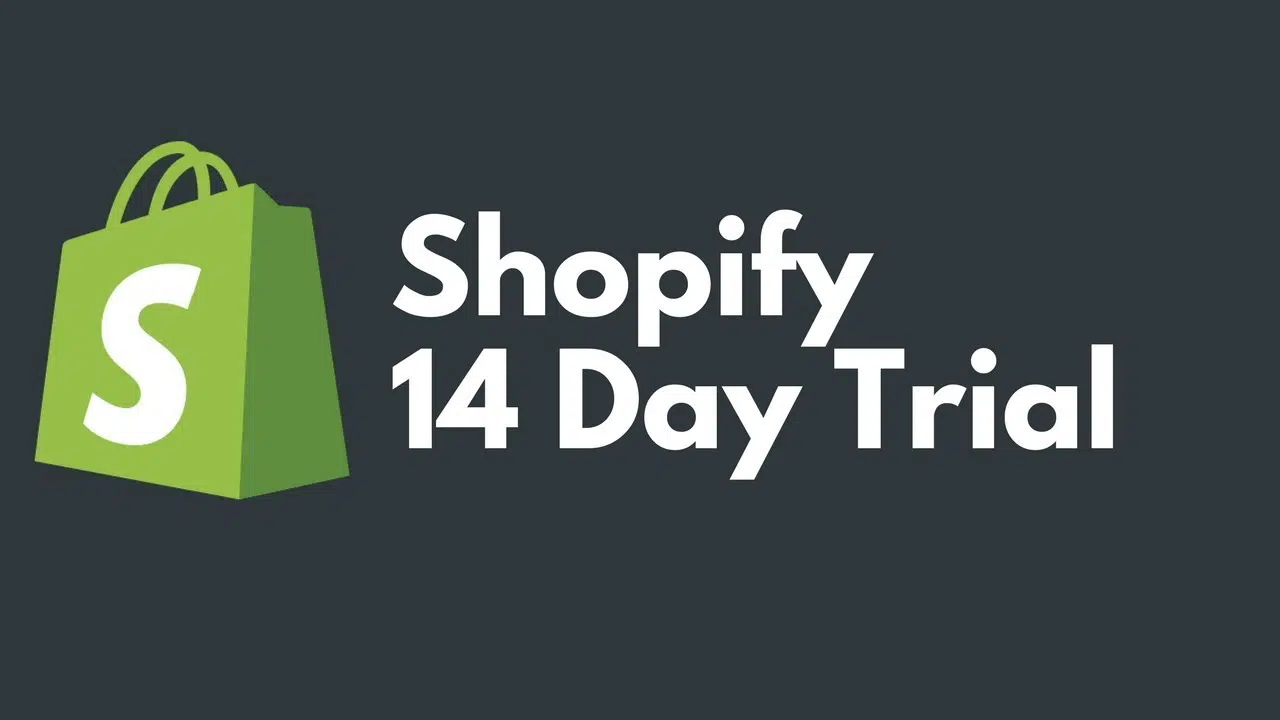- Overview of Shopify, Plusbase, and Shopcase
- Benefits of Using Each Platform for E-commerce Businesses
- Best E-commerce Platforms for Small Businesses
- Feature Comparison
- Pros and Cons of the Three Platforms Compared
- Tips for choosing the right e-commerce platform for your business needs
- Cost Comparison of Plans Offered by Each Platform
- Unique Selling Points for Each Platform
- Support Options Available on Each Platform
- FAQs
- Conclusion
Are you unsure which e-commerce platform best fits your business? You’re not alone! With so many options available, making the right decision can be overwhelming.
We’re here to help you decide between Shopify, Plusbase, and Shopcase – three popular e-commerce platforms vying for your attention. Each has its advantages and disadvantages that need to be considered carefully before upgrading or changing platforms. Keep reading this article to learn more about each option and how they compare in terms of features, pricing, and overall value.
We’ll be diving into everything from storefront customization capabilities to customer service support services so that you have all the information you need to make an informed decision about which platform is right for you.
Overview of Shopify, Plusbase, and Shopcase
Here is a breakdown of the three e-commerce platforms:
Shopify

Shopify is a leading e-commerce platform enabling businesses to create their online store effortlessly. It provides a wide range of templates that can be customized to meet your business needs, and it comes with multiple features such as SEO tools, mobile optimization, and an integrated blogging platform.
Shopify stands out for its user-friendly interface and extensive app market, enhancing functionality. Pricing plans vary based on the scale of your business, starting with a basic plan suitable for startups up to advanced plans for large-scale businesses.
Plusbase

Plusbase is an emerging e-commerce platform known for its flexibility and scalability. It offers a unique balance of basic and advanced features, making it suitable for both small businesses and established enterprises. Plusbase provides comprehensive inventory management, payment and tax handling, and customer relationship management.
It also offers the option for API integration for businesses requiring a more customized solution. Plusbase follows a pay-as-you-grow pricing model, making it efficient for businesses with variable sales volumes.
Shopcase

Shopcase, a newcomer in the e-commerce platform space, sets itself apart with its focus on providing a seamless mobile shopping experience. It provides easy-to-use tools for creating an engaging mobile storefront and includes built-in mobile marketing and analytics features.
While its features might seem limited compared to Shopify and Plusbase, Shopcase makes up for it with its commitment to providing a robust and responsive mobile platform. Shopcase operates on a subscription model with different tiers based on features and support levels.
Benefits of Using Each Platform for E-commerce Businesses
The following are some benefits of using each of the platforms:
Benefits of Shopify
Shopify is well-regarded for its simplicity and ease of use, making it ideal for those new to e-commerce. It offers a comprehensive range of features out of the box, such as inventory management, SEO tools, and a vast selection of themes, reducing the need for additional plugins. Moreover, its scalability makes it a suitable option for businesses of all sizes.
Benefits of Plusbase
Plusbase stands out for its balance of simplicity and advanced features. A key benefit is its highly customizable nature, appealing to businesses with specific needs that traditional platforms can’t meet. The pay-as-you-grow pricing model allows businesses to scale their operations without worrying about steep upfront costs.
Benefits of Shopcase
Shopcase differentiates itself with its mobile-centric approach, catering to the increasing number of mobile shoppers. Its user-friendly interface makes creating a mobile-responsive store a breeze. Shopcase also has effective tools for mobile marketing and analytics, helping businesses better understand their target audience and optimize their mobile sales.
Best E-commerce Platforms for Small Businesses
Small businesses often have unique requirements and budgets, making choosing the right e-commerce platform crucial. While Shopify, Plusbase, and Shopcase offer robust features and functionality, a few factors set them apart when it comes to small business needs.
Affordability
For small businesses with limited resources, cost plays a significant role in choosing an e-commerce platform. Shopify’s basic plan starts at $29 per month, while Plusbase and Shopcase offer more affordable options with their pay-as-you-grow and subscription models.
Customization Options
Small businesses often require flexibility in design and functionality to stand out from the competition. Shopify has a vast selection of themes and customization options, making it ideal for businesses looking to create a unique online presence.
Plusbase offers a highly customizable solution, allowing businesses to tailor their storefront and features to their particular needs. While Shopcase’s customization options may be limited compared to Shopify and Plusbase, its mobile-friendly focus makes it a top choice for small businesses looking to attract a growing number of mobile shoppers.
Customer Support
In the fast-paced world of e-commerce, having reliable customer support can make all the difference. Shopify offers 24/7 customer support via chat, phone, and email. Plusbase provides dedicated account managers for its higher-tier plans, while Shopcase offers personalized onboarding and training sessions.
Feature Comparison
When comparing Shopify, Plusbase, and Shopcase, we must consider several key features crucial for e-commerce businesses.
Storefront Customization
- Shopify offers a wide range of themes and customization options, allowing businesses to create a unique and appealing online store.
- Plusbase also provides extensive customization options, catering to businesses with specific needs that traditional platforms can’t meet.
- Shopcase is more focused on mobile storefronts, which may limit some customization options but provides an outstanding mobile shopping experience.
Inventory Management
- Shopify and Plusbase both offer comprehensive inventory management features, enabling businesses to seamlessly track and manage their product listings.
- Shopcase, being primarily mobile-focused, has a more straightforward inventory management system.
Mobile Responsiveness
- All three platforms provide mobile-friendly interfaces, but Shopcase takes the lead with its primary focus on providing an optimized mobile shopping experience.
SEO Tools
- Both Shopify and Plusbase offer built-in SEO tools, which can help businesses rank higher on search engines and draw more traffic to their online stores.
- Shopcase currently doesn’t offer built-in SEO tools, focusing more on the mobile shopping experience.
Payment and Tax Handling
- Shopify, Plusbase, and Shopcase all offer integrated payment and tax handling features, making transactions smooth and hassle-free for both businesses and customers.
Pricing
- Shopify has a tiered pricing model starting at $29 per month, making it an excellent choice for businesses of all sizes.
- Plusbase follows the pay-as-you-grow pricing model, which can be more efficient for businesses with variable sales volumes.
- Shopcase uses a subscription model with different tiers based on features and support levels, making it a flexible and affordable option for small businesses and startups.
Pros and Cons of the Three Platforms Compared

Pros and Cons of Shopify
The following are some advantages and disadvantages of using Shopify:
Pros
- User-friendly and straightforward to use, making it ideal for e-commerce beginners
- Offers a vast array of themes and features, thus reducing the need for additional plugins
- Excellent scalability makes it suitable for businesses of all sizes
Cons
- Higher cost compared to other platforms, with the basic plan starting at $29/month
- Customization options, while extensive, may require some coding knowledge to fully exploit
Pros and Cons of Plusbase
The following are some advantages and disadvantages of using Plusbase:
Pros
- Offers a balance of simplicity and advanced features to cater to a wide range of businesses
- Highly customizable, allowing businesses to tailor their storefront to their specific needs
- Pay-as-you-grow pricing model makes it affordable and scalable for businesses
Cons
- It may not be as beginner-friendly due to its advanced customization options
- Dedicated account managers are only available for higher-tier plans
Pros and Cons of Shopcase
The following are some advantages and disadvantages of using Shopcase:
Pros
- Strong focus on mobile shopping, which is a rapidly growing market segment
- User-friendly interface simplifies the creation of a mobile-responsive store
- Offers effective tools for mobile marketing and analytics
Cons
- Customization options are somewhat limited compared to Shopify and Plusbase
- Does not currently offer built-in SEO tools, placing more emphasis on the mobile shopping experience
Tips for choosing the right e-commerce platform for your business needs
Choosing the right e-commerce platform for your business needs can be daunting, given the myriad of options available. However, a few key considerations can make the process easier:
Understand Your Business Needs
Look at your pod business model, your product offerings, your target audience, and your business’ size. These factors will help you determine the features and functionality you need from an e-commerce platform.
Consider Your Budget
It’s important to clearly understand your budget and how much you’re willing to invest in an e-commerce platform. This will help narrow down your options and avoid overspending on unnecessary features.
Evaluate Customization Options
If having a unique and visually appealing storefront is crucial for your business, consider platforms like Shopify or Plusbase, which offer extensive customization options. However, if you’re looking for a simple and mobile-focused store, Shopcase may be the correct choice.
Customer Support and Training
Having reliable customer drop shipping support can make all the difference when running an online business. Consider what level of support each platform offers and any training resources they provide to help you get started.
Scalability and Flexibility
Your business e-commerce platform may grow and change over time, so it’s important to choose a platform that can accommodate your future needs. Look for tiered pricing models or pay-as-you-grow plans that allow for scalability without breaking the bank.
Cost Comparison of Plans Offered by Each Platform

Shopify
Shopify operates on a tiered pricing model, offering three main plans:
- Basic Shopify: Shopify payments are Priced at $29 per month. This plan offers all the essential features for starting a new business.
- Shopify: Priced at $79 per month, it offers additional features like gift cards and professional reports.
- Advanced Shopify: Priced at $299 per month, this plan offers advanced features for scaling your business.
Plusbase
Plusbase works on a pay-as-you-grow pricing model:
- Starter: Free-to-start website templates with transaction-based fees as your business grows.
- Professional: Custom pricing depending on the specific needs of your business, offering more features and lower transaction fees.
Shopcase
Shopcase operates via a subscription model, offering different tiers based on features and support levels:
- Basic: Priced at $19 per month, this plan is perfect for startups, analytics tools, or small businesses.
- Professional: Priced at $49 per month, this offers more advanced features suitable for growing businesses.
- Premium: Priced at $99 per month, this plan offers all features and priority support, suitable for large businesses or those wanting the best possible support.
Each platform offers different pricing structures and features, making it essential to evaluate your specific business needs and budget before making a decision.
User Experience Comparison
What makes each platform stand out in terms of usability, design, and customer service?
Shopify is famed for its intuitive interface and easy-to-use nature. The platform’s dashboard is clean and well-organized, allowing users to easily navigate and manage their stores. Furthermore, Shopify’s design is modern and attractive, with various themes you can tailor to any business type. Shopify also shines in customer service, providing 24/7 live chat, phone, and email support.
Plusbase offers a balance of simplicity and advanced features. While it may not be as straightforward as Plusbase Compare Shopify, the platform is still very user-friendly once you get used to its layout and functions. Plusbase’s sleek and professional design and its customization options let businesses create unique, personalized storefronts. However, Plusbase’s premium support, including dedicated account managers, is only available for higher-tier plans.
Shopcase stands out for its focus on mobile shopping, offering a seamless user experience on smartphones and tablets. Its design is clean and minimalistic, with a simple interface that allows even beginners to create a mobile-responsive store. Shopcase also impresses with its efficient customer service, though it’s worth noting that priority support is only available to Premium subscribers.
Unique Selling Points for Each Platform

Unique Selling Points of Shopify
Shopify stands out with its user-friendly design and robust scalability. Its vast array of themes and features allows businesses to create a unique and aesthetically pleasing storefront with minimal need for additional plugins. Its scalability makes it an excellent choice for businesses of all sizes, ranging from startups to established enterprises.
Unique Selling Points of Plusbase
Plusbase shines with its balance of simplicity and advanced features, catering to a broad range of businesses. One of its attractive features is its high customizability, enabling businesses to align their storefront with their specific needs. Its pay-as-you-grow pricing model makes it an affordable and scalable option for businesses with variable sales volumes.
Unique Selling Points of Shopcase
Shopcase sets itself apart with its strong focus on mobile shopping. Understanding the rapidly growing market segment of mobile shopping, Shopcase provides easy-to-use tools for creating a mobile-responsive store and effective tools for mobile marketing and analytics. Its user-friendly interface is a significant advantage for those who want to focus on the mobile shopping experience.
Support Options Available on Each Platform
Shopify offers comprehensive 24/7 customer support through multiple channels. Users can reach out via live chat, email, or phone. Additionally, Shopify provides detailed documentation, community forums, and video tutorials to help users troubleshoot issues on their own.
Plusbase, on the other hand, offers customer support mainly via email and live chat. Their premium support, inclusive of dedicated account managers and priority assistance, is only available to users subscribed to their higher-tier plans. Nevertheless, they offer a rich knowledge base for self-help and learning resources for better navigability on their platform.
Shopcase prides itself on efficient customer service, providing support via live chat and email. However, priority support, which ensures faster response times, is only available to Premium subscribers. Simultaneously, the ecommerce business Shopcase maintains an extensive FAQ section and user guide to assist users in resolving common issues independently.
FAQs
How do I choose the best platform for my business?
The best platform for your business payment gateway depends on your specific needs and objectives. Consider factors like pricing, user experience, unique selling points, and available support options. If you prioritize user-friendly design and scalability, Shopify could be your fit. If you’re looking for high customizability and a pay-as-you-grow model, consider Plusbase. If mobile shopping is your focus, Shopcase is an excellent option.
Can I switch platforms later if my business needs to change?
Yes, you can switch third-party app integrations to ecommerce platforms in the future if your business needs evolve. However, it’s essential to consider the potential costs and challenges of migrating data and learning a new platform’s interface. It’s best to choose a platform that aligns with your long-term goals and provides enough flexibility for future growth.
Can I integrate third-party apps or plugins into these platforms?
Yes, all three platforms allow integration with various third-party apps and plugins. However, some may require additional fees or coding knowledge to implement successfully. It’s essential to research sell online and carefully select the apps that align with your business needs and budget.
Is there a free trial available for these platforms?
All three platforms offer a free trial period, with Shopify and Shopcase providing a 14-day trial and Plusbase offering a 30-day trial. It’s recommended to take a shopping cart advantage of the free trial to explore the platform’s features and decide if it meets your business requirements before committing to a long-term subscription. Overall, each platform business data has its strengths and unique features that cater to different businesses.
Conclusion
We hope this document has provided valuable insights into the three leading e-commerce platforms: Shopify, Plusbase, and Shopcase. Each platform offers a range of features and benefits that cater to different business needs and preferences. Whether you prioritize user experience, mobile shopping, or customizability, there is a platform for every type of business.










